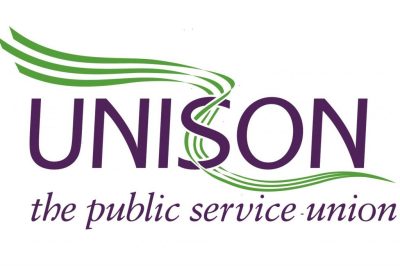The Lucas Aerospace Combine Shop Stewards' Committee
A Tribute to the Pioneering Lucas Aerospace Combine Shop Stewards’ Committee


Welcome to our website!
The website has been compiled by former members of the Lucas Aerospace Combine Shop Stewards Committee to record the history of the Combine, the detail of the Lucas workers’ Plan and its campaign to get the plan implemented.
While the Lucas Combine’s campaign took place in the 1970s the Lucas Plan is a model which as relevant today as it was 50 years ago; therefore the website aims to encourage other workers and community groups to follow in the Lucas workers’ footsteps by developing their own plans and so determine their own destinies – from the “bottom up”
The 1970s was a decade when trade union-organised workers successfully resisted enforced redundancies and cuts to living standards. Large sections of industry took strike action and over 200 factory occupations took place. This industrial unrest reflected a mood of disconnect with an economic system that worked against the interests of working class people and was instrumental in bringing down an unpopular Conservative government. The 1974 General Election resulted in a Labour Government victory based on a manifesto promising a shift of power in favour of working class people.
It’s within this political context that the Lucas Aerospace Combine Shop Stewards Committee undertook their Lucas Plan campaign.
Lucas Aerospace was part of the Lucas Industries group of companies undertaking the design and manufacture of military and civil components for the aerospace industry on 17 different geographical sites. All sites were totally trade union organised and, as a means of addressing corporate issues, the nine works and staff shop stewards from all sites established a Combine Shop Stewards Committee to enable the workforce to have a coordinated approach on issues that were common to all their interests such as pensions, employment levels and the introduction of new technology. The Combine Committee was successful in preventing enforced redundancy, however through natural wastage the management reduced the overall workforce from 18000 in 1970 to 12000 in 1974. The introduction of new technology and overseas investment enabled management to operate with a reduced workforce
A Combine delegation of 34 shop stewards met with Tony Benn, the Labour Government Secretary State for Industry, in November 1974 to make him aware of Lucas management’s rationalisation strategy and to seek information on government plans for the aerospace industry. Tony Benn advised the Combine shop stewards to draw up an Alternative Corporate Plan.
Over the next 12 months detailed work was undertaken to draw up the Lucas workers’ Plan. It was revolutionary given that it challenged economic orthodoxy by retaining workers, rather than making them redundant, to enable them to use their skills and the available technology to design and manufacture products that answered social need. With the emphasis being on use value of the products rather than exchange value.
150 socially useful products were identified by the workforce covering six categories. All embraced human centred technology operating within a circular economy that enhanced workers skills and valued existing resources. Among the products identified were those that are now relevant and main stream such as Heat Pumps, Wind Turbines and Hybrid car engines.
Two Polytechnic based centres were established, jointly managed by the Combine, as a result of charitable funding. Both centres promoted the Lucas Plan philosophy, undertook research and carried out product development.
The Lucas Plan attracted both national and international support and was nominated for the 1979 Nobel Peace Prize.
Lucas management refused to meet with the Combine to discuss the plan and despite it being Labour Party policy to support the plan, no steps were ever taken by government ministers to put pressure on the management to enter into negotiations with the Combine even though, as a customer to Lucas Aerospace, they were in a good position to do so.
The Combine was weakened by the lack of government support and in 1979 Lucas management took full advantage by announcing their intention to make 2000 workers redundant. Despite a Confed working party of shop stewards, made up of mainly Combine representatives, producing a 200 page report, that destroyed the management’s argument for cutting the workforce, full time trade union officers and government ministers, behind closed doors, negotiated with Lucas management a reduced number (1500) at a cost to the taxpayer of £8 million.
So the Labour Government missed an opportunity to bring about radical economic change which the Lucas Plan provided and the 1979 General Election victory of Margaret Thatcher’s Conservative Party and the anti- trade union policies she pursued shut the door on any future challenges to the market led economy.
Lucas Aerospace and its parent company Lucas Industries no longer exist despite management insisting, when the workers’ Plan was presented, that concentrating on pursuing aerospace contracts was the only means of guaranteeing ongoing employment. If management had taken account of their workers opinions and had been pressured to adopt the Lucas Plan, the company would have diversified its product range in line with emerging markets, extended employment opportunities and answered social need.
A New Lucas Plan: An Idea Whose Time Has Come?
This website was established by surviving members of the Lucas Aerospace Combine Shop Stewards’ Committee; it provides written and filmed information of the history of the Combine, describes the jointly managed Academic Centres it established and the campaign to save and create jobs by the implementation of its Workers’ Alternative Plan (Lucas Plan) for the company. The Lucas Plan advocated the saving of jobs by an orderly transition of production to socially useful goods and the use of democratically controlled technology for the benefit of society as a whole.
Over the last four decades and more since the launch of the Lucas Plan in 1976, acres of print and miles of film have been produced to discuss the Plan and the issues raised within it. The discussion continues, as the issues raised in the Plan are even more pertinent today, and far more urgent, particularly given our environmental problems, a dramatically shortened timescale and the dominance of the arms trade.
Prompted by the conference, organised by the New Lucas Plan Group and held in Birmingham on 26th November 2016 to celebrate the fortieth anniversary of the launch of the Plan, we (former Combine members) decided to put some of our own material and memories online. We felt that a site established by former Combine members was long overdue. New material will be added over time, some previously unpublished, some buried for years. We will be happy to receive material on the Plan and Combine which may be new or lost to us. Additionally, the website is to commemorate the Combine’s achievements in the 1970s and to encourage similar “bottom-up” initiatives from workers and communities now and in the future. The Combine’s Plan demonstrated that an alternative ‘bottom up’ approach to the use of technology that answers social needs, is more cost effective to the taxpayer and creates more jobs for a given amount of public expenditure.
Hopefully, those who access this site, will be able to apply a similar approach when faced with the same problems as the Lucas workers all those years ago. We believe our process is applicable to most situations. If the information on this website helps workers or community activists provide an answer to the problems they face, it will have achieved a major objective.
At a time when politicians fail to answer the threat to the planet posed by climate change, pursuing confrontation between nations rather than co-operation, the time now is right for lessons to be learned from the Lucas Aerospace workers who used the power they put into their own hands in an attempt to resolve their own problems and answer society’s needs.
This website is dedicated to all of the Lucas Aerospace Combine Shop Stewards and the workforce. Without their full involvement and the sharing of their skill and expertise, the Lucas Plan would never have been developed and promoted. It’s sad to say that many of the Combine shop stewards are now no longer with us. The following are those we know of and are very much missed.
Mike Cooley, Ernie Scarbrow, Danny Conroy, Ron Mills, John Routley and Mike George (CAITS).
For the record, the original title of the Lucas Plan, as it is now known was : ‘Corporate Plan: a contingency strategy as a positive alternative to recession and redundancies’
The content of the website has been compiled by former Combine members Phil Asquith, John Routley and Brian Salisbury, with the support of Mike Cooney, Bob Dodd, Ron Mills and the inspiration of the late Mike Cooley, Ernie Scarbrow and Danny Conroy.
FOR MORE DETAILED INFORMATION VISIT
We would also like to give a special thank you to

Unison West Midlands Fire Service Branch

For kindly sponsoring the development of this website.
THE HISTORY OF THE LUCAS AEROSPACE COMBINE SHOP STEWARDS’ COMMITTEE
'Without the Combine there wouldn't have been a Lucas Plan'

Lucas Aerospace, a part of the Lucas Industries Group, was a major manufacturer of aerospace components. It employed 18,000 highly skilled manual and staff workers on its 17 sites. The workforce had a strong and effective trade union representation involving 12 manual and staff trade unions. Because Lucas Aerospace management made corporate decisions centrally, the shop stewards realised that the multi trade union structure that existed made it difficult for the workforce, through its elected representatives, to respond in a coherent manner. So the democratically elected senior stewards of both manual and staff unions from all the Lucas Aerospace sites combined and formed a committee which was representative of the entire workforce.
The Lucas Aerospace Combine Shop Stewards’ Committee was an addition to the existing trade union structure, ensuring that individual unions retained their own autonomy and negotiating rights. Liaison or joint shop stewards’ committees also operated on most sites, again dealing with issues of a common nature. The Combine met on a regular basis with any recommendations reached being reported back to the individual sites for decisions to be reached democratically. Between meetings, liaison took place between sites by telephone. Information was shared and when necessary, support was given to individual sites.
The Combine was effective in preventing management playing one site off against another. Although not an official negotiating body, the Combine through information sharing, provided support when necessary. It proved to be an effective trade union body and a thorn in the side of management. In its strategy development role, the Combine enabled individual craft unions to negotiate from a position of strength. As the Combine’s influence grew, it played a major role in improving both works’ and staff pensions, drawing on the knowledge of individuals within the workforce who, although not employed in the pension field, had a natural expertise, which they provided voluntarily to aid the members. For more details of the formation of the Combine and the politics surrounding it, we recommend Hilary Wainwright and Dave Elliott’s book, The Lucas Plan – a new trade unionism in the making?
In the early 1970s the national aerospace Industry was being restructured, actively encouraged by Government. The Combine could see that Lucas Aerospace would be affected. During an historic meeting in November 1974 with Tony Benn, the Government’s Secretary of State for Industry, the Combine was encouraged to develop an alternative strategy for the company. When the Combine next met it decided to draw up an alternative Corporate Plan with the full involvement of the Lucas Aerospace workforce. For a more detailed account of the evolution of the Combine click https://www.lucasaerospacecombine.co.uk/p/the-combine.html